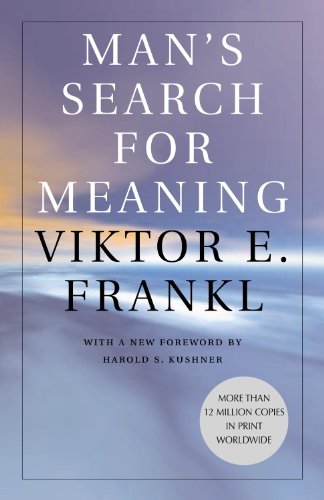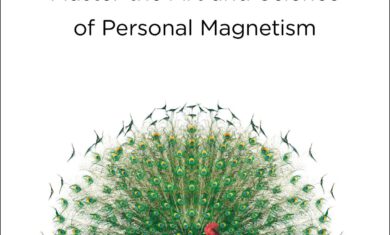Man’s Search for Meaning is another book that had been on my “to read” list for a long time. I’m glad I finally got around to it. His detailed description of his time in various concentration camps during World War II were vivid and eye-opening.

The book is broken into two main sections. The first half of the book is Frankl recounting his time as a prisoner, and was riveting. The second half of the book digs into his theory of logotherapy, which was a completely different direction. It was almost like reading two different books.
Some highlights I pulled from the book:
Life is not primarily a quest for pleasure, as Freud believed, or a quest for power, as Alfred Adler taught, but a quest for meaning. The greatest task for any person is to find meaning in his or her life. Frankl saw three possible sources for meaning: in work (doing something significant), in love (caring for another person), and in courage during difficult times. Suffering in and of itself is meaningless; we give our suffering meaning by the way in which we respond to it.
Forces beyond your control can take away everything you possess except one thing, your freedom to choose how you will respond to the situation. You cannot control what happens to you in life, but you can always control what you will feel and do about what happens to you.
I think it was Gotthold Ephraim Lessing who once said, “There are things which must cause you to lose your reason or you have none to lose.” An abnormal reaction to an abnormal situation is normal behavior.
Love goes very far beyond the physical person of the beloved. It finds its deepest meaning in his spiritual being, his inner self. Whether or not he is actually present, whether or not he is still alive at all, ceases somehow to be of importance.
I thought again of Death in Tehran.
Death in Tehran: A rich and mighty Persian once walked in his garden with one of his servants. The servant cried that he had just encountered Death, who had threatened him. He begged his master to give him the fastest horse so that he could make haste and flee to Tehran, which he could reach that same evening. The master consented and the servant galloped off on the horse. On returning to the house the master himself met Death, and questioned him, “Why did you terrify and threaten my servant?” “I did not threaten him; I only showed surprise in still finding him here when I planned to meet him tonight in Tehran,” said Death.
everything can be taken from a man but one thing: the last of the human freedoms—to choose one’s attitude in any given set of circumstances, to choose one’s own way.
If there is a meaning in life at all, then there must be a meaning in suffering. Suffering is an ineradicable part of life, even as fate and death. Without suffering and death human life cannot be complete.
Research work done on unemployed miners has shown that they suffer from a peculiar sort of deformed time—inner time—which is a result of their unemployed state. Prisoners, too, suffered from this strange “time-experience.” In camp, a small time unit, a day, for example, filled with hourly tortures and fatigue, appeared endless. A larger time unit, perhaps a week, seemed to pass very quickly.
the words of Otto von Bismarck could be applied: “Life is like being at the dentist. You always think that the worst is still to come, and yet it is over already.”
What does Baruch Spinoza say in his Ethics? —“Affectus, qui passio est, desinit esse passio simulatque eius claram et distinctam formamus ideam.” Emotion, which is suffering, ceases to be suffering as soon as we form a clear and precise picture of it.
Nietzsche’s words, “He who has a why to live for can bear with almost any how,”
Life ultimately means taking the responsibility to find the right answer to its problems and to fulfill the tasks which it constantly sets for each individual.
When a man finds that it is his destiny to suffer, he will have to accept his suffering as his task; his single and unique task. He will have to acknowledge the fact that even in suffering he is unique and alone in the universe. No one can relieve him of his suffering or suffer in his place. His unique opportunity lies in the way in which he bears his burden.
And I quoted from Nietzsche: “Was mich nicht umbringt, macht mich stärker.” (That which does not kill me, makes me stronger.)
Again I quoted a poet—to avoid sounding like a preacher myself—who had written, “Was Du erlebst, kann keine Macht der Welt Dir rauben.” (What you have experienced, no power on earth can take from you.)
What man actually needs is not a tensionless state but rather the striving and struggling for a worthwhile goal, a freely chosen task.
If architects want to strengthen a decrepit arch, they increase the load which is laid upon it, for thereby the parts are joined more firmly together. So if therapists wish to foster their patients’ mental health, they should not be afraid to create a sound amount of tension through a reorientation toward the meaning of one’s life.
This emphasis on responsibleness is reflected in the categorical imperative of logotherapy, which is: “Live as if you were living already for the second time and as if you had acted the first time as wrongly as you are about to act now!”




[…] using the time to do a lot of reading (in the past month I’ve read Marketing Made Simple, Man’s Search for Meaning, The Checklist Manifesto, Friend of Friend, The Art of War and One Second After, which is probably […]